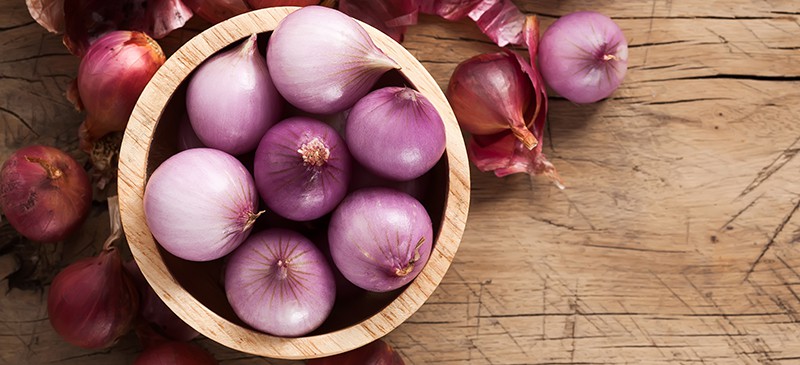
Shallots: the Type of Onion with Cancer-Fighting and Heart-Improving Properties
Introduction:
Shallots, a lesser-known variety of onion, have gained attention in recent years due to their remarkable health benefits. In addition to their distinctive flavor and culinary versatility, shallots possess unique properties that contribute to cancer prevention and heart health. This article delves into the numerous advantages of shallots, shedding light on their potential to improve overall well-being.
Section 1: The Nutritional Profile of Shallots
Shallots, scientifically classified as Allium cepa var. aggregatum, are small, elongated bulbs that belong to the onion family. Despite their diminutive size, they boast an impressive nutritional profile. Shallots are rich in essential vitamins such as vitamin C, vitamin A, and vitamin B6. They also contain minerals like potassium, manganese, and iron. Moreover, they are a good source of dietary fiber and antioxidants, making them a valuable addition to a health-conscious diet.
Section 2: Cancer-Fighting Properties
One of the most notable attributes of shallots is their potential in combating cancer. Studies have revealed that shallots contain organosulfur compounds, including allyl sulfides and flavonoids, which possess powerful anti-cancer properties. These compounds help to inhibit the growth of cancer cells and reduce the risk of certain types of cancer, including stomach, colorectal, and breast cancer. Incorporating shallots into your diet can serve as a natural defense against these life-threatening diseases.
Section 3: Heart Health Benefits
Maintaining a healthy heart is vital for overall well-being, and shallots can play a role in achieving this goal. The sulfur compounds found in shallots, particularly allyl sulfides, contribute to heart health by reducing the risk of cardiovascular diseases. They promote blood circulation, lower blood pressure, and help prevent the formation of blood clots. Additionally, shallots contain quercetin, a potent antioxidant that aids in reducing inflammation and improving blood vessel function, further benefiting heart health.
Section 4: Other Health Advantages
Shallots offer a range of additional health advantages. Their antioxidant properties help combat oxidative stress, protecting cells from damage caused by harmful free radicals. Shallots also possess antimicrobial properties that can assist in fighting off bacterial and fungal infections. Furthermore, their high fiber content aids digestion and promotes a healthy gut by supporting beneficial gut bacteria.
Section 5: Culinary Uses and Tips
In the culinary realm, shallots are highly regarded for their delicate and nuanced flavor. They add a mild oniony taste to various dishes, making them a popular ingredient in salads, stir-fries, soups, and sauces. When using shallots, it is best to slice or chop them finely to enhance their flavor and distribute it evenly throughout the dish. Additionally, shallots are versatile and can be enjoyed both raw and cooked, offering a unique taste to elevate your culinary creations.
Conclusion:
Shallots, with their cancer-fighting and heart-improving properties, exemplify the notion that good health can be nourished through our food choices. Incorporating shallots into your diet can enhance overall well-being and contribute to a healthier lifestyle. By leveraging the nutritional benefits and culinary versatility of shallots, individuals can savor both the flavor and the potential health advantages these small bulbs have to offer.
Keep this going please, great job!
Can I simply just say what a comfort to discover an individual who really understands what they’re discussing online.
You actually know how to bring a problem to light and make
it important. A lot more people really need to read this and understand this side of your story.
It’s surprising you’re not more popular given that you
surely possess the gift.
Wonderful article! We will be linking to this particularly great content on our site.
Keep up the great writing.
Thankfulness to my father who shared with me about this
web site, this web site is really amazing.
Thanks in favor of sharing such a fastidious thought, piece of writing is good, thats
why i have read it fully
Good day! This is my 1st comment here so I just wanted to give a quick shout out and
tell you I truly enjoy reading through your posts. Can you
suggest any other blogs/websites/forums that cover the same
subjects? Thank you!
Very good info. Lucky me I discovered your site by chance (stumbleupon).
I’ve book-marked it for later!